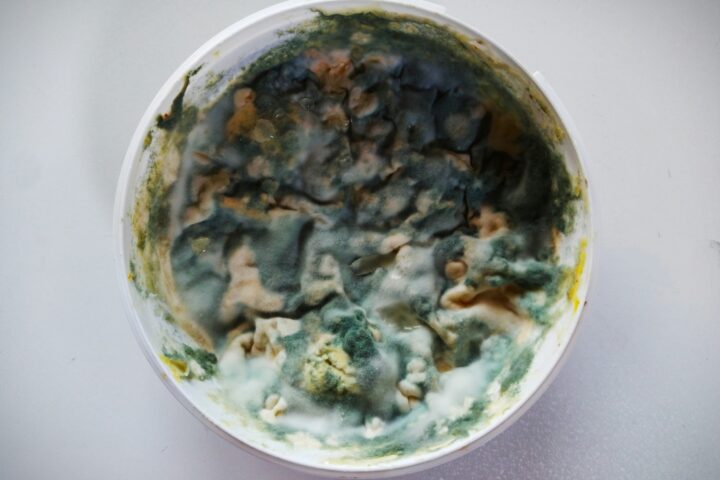
Late blight: utilising resistance from wild potatoes
Late blight is one of the most dangerous potato diseases. It causes an estimated 20 per cent loss in potato harvests every year. In both organic and conventional agriculture, the use of crop protection products is necessary to prevent major losses due to the fungal disease. Research and innovation are needed to reduce the amount of pesticides used. Agricultural biotechnology can be used to equip potatoes with a resistance gene against late blight. The use of crop protection products can be reduced to a minimum.
Monday, July 6, 2020
The most important facts in brief:
- Late blight can cause devastating damage in potato cultivation.
- The fungal disease can usually be controlled well with the use of crop protection products.
- An alternative would be a variety that is resistant to the pathogen.
Late blight (Phytophthora infestans) is the potato's worst enemy. It is an egg fungus that causes the disease in potatoes. The pathogen is notorious for its extremely rapid spread and flexibility. It has the ability to react to control strategies with new forms and is therefore difficult to combat. In the middle of the 19th century, the fungal disease destroyed almost the entire potato crop in Ireland in several consecutive years and caused a famine of historic proportions. Around one million people starved to death. Several million Irish emigrated to Australia or North America.
Costly control
Thanks to fungicides, late blight no longer causes comparable damage in Europe. However, combating the disease is still very costly. While farmers in conventional agriculture have a wide range of modern synthetic crop protection products at their disposal, the only effective product authorised in organic farming is copper, which is also produced synthetically (the effect of other products such as whey, rock flour or horsetail extract is highly controversial). The spraying intervals must be kept very short, especially with organic products. In warm and humid weather, treatment must be carried out weekly. Without treatment, there is a risk of major crop losses. At the same time, resource-efficient agriculture must minimise the use of crop protection products. Innovative techniques are needed to significantly reduce the use of fungicides.
Resistant wild potatoes
Researchers have been working for years on breeding Phytophthora-resistant potatoes. A successful solution already exists. Using molecular biological methods, resistance genes from wild potatoes can be inserted into existing varieties. Various wild potato species have natural resistance to the pathogen that causes late blight. Attempts to cross them into potato varieties using conventional breeding methods were often unsuccessful. After a few years, the mutated fungus returned and broke through the resistant properties of the potatoes. Crossbreeding also always passes on undesirable characteristics, which can have negative effects on flavour, for example. Getting rid of these by backcrossing is a lengthy process.
Efficient agricultural biotechnology
Biotech methods are much faster. The exact gene sequences from wild potatoes that are required for the transfer and expression of the resistance genes can be inserted into existing varieties. The new potatoes created in this way therefore only contain genes specific to the species and are therefore referred to as cisgenic. Field trials in the Netherlands and Ireland showed that all potato varieties (equipped with one or more resistance genes) were more resistant to the pathogen than the conventional original varieties. Potatoes with three combined resistance genes remained completely resistant until the end of the season. With this method and suitable resistance management, up to 80 per cent of the quantities of fungicides can be saved.
Opportunity for sustainable agriculture
The technology for producing Phytophthora-resistant potatoes is available. The plants are available and have proven themselves in years of field trials in Switzerland and the rest of Europe. The efficiency of the biotech method is obvious. However, due to the moratorium on genetic engineering in Switzerland, the cultivation of genetically modified plants is prohibited, even though this could save large amounts of crop protection products. This example makes it clear that research and development of new technologies are the key to more resource-efficient agriculture. Agricultural biotechnology therefore represents a great opportunity for more sustainable agriculture. By contrast, technology bans are of little use to the environment.
Related articles

Genetic Engineering in Everyday Swiss Life – “There’s a Gene in Everything!”
The genetic engineering moratorium in place since 2005 gives the impression that Switzerland is largely free of genetic engineering. However, a closer look shows that genetic engineering has long since become part of our everyday lives – we just usually don’t notice it.

Global facts on world food and agriculture
Only thanks to technological progress and modern crop protection will we be able in the future to conserve our resources while feeding a growing population in a healthy and affordable way.

Pesticides in Green Smoothies
After countless recipes for Christmas cookies, festive roasts and cocktails, the advice on losing weight, detoxing and beautifying oneself now takes centre stage. Most of it is sheer nonsense.

Natural Toxins: An Underestimated Risk in Our Food
Safe food cannot be taken for granted. While chemical substances are often the focus of public criticism, reality shows that the greatest risks to food safety are of natural origin. Recent recalls of infant food products illustrate how insidious bacterial toxins or moulds can be.

